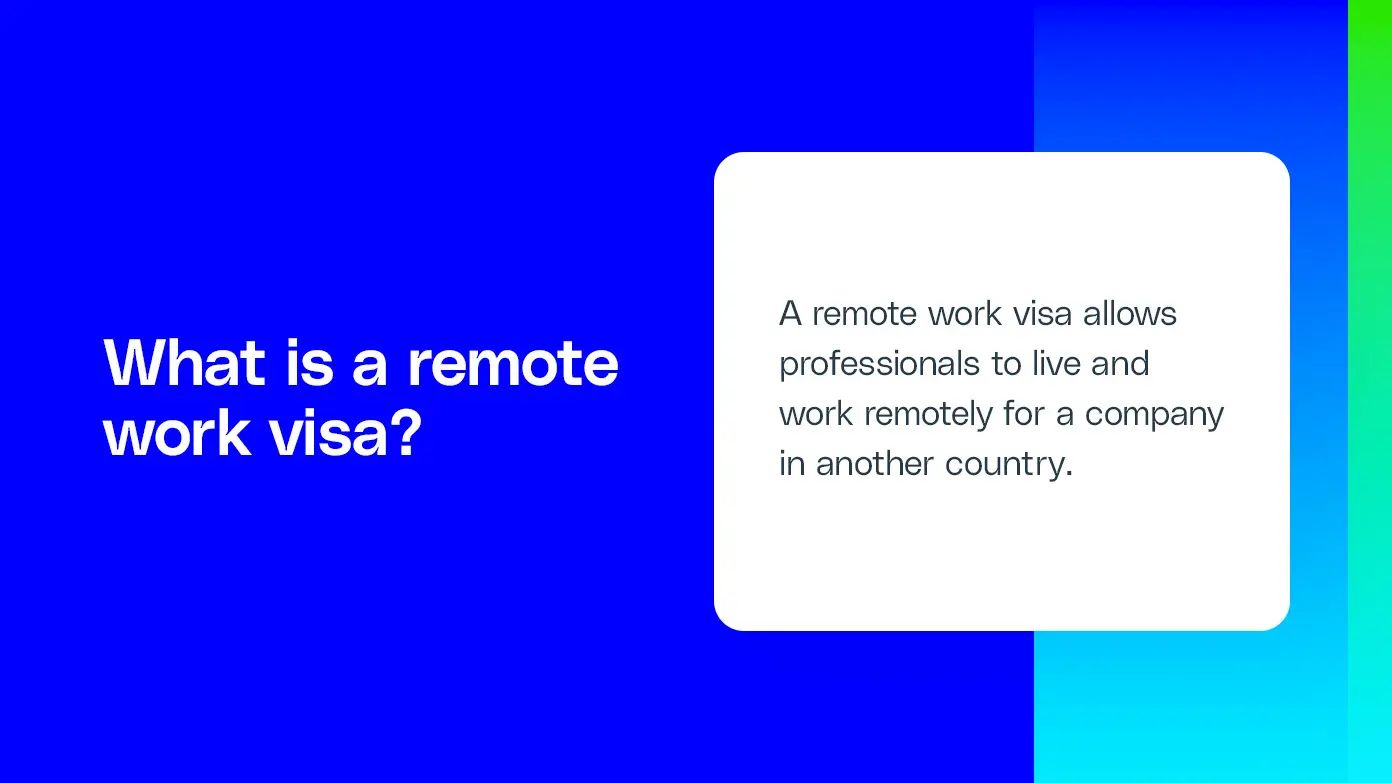Thinking about working remotely while living in another country? You’re not alone.
The idea of waking up to a new culture, different scenery, and the freedom to explore the world sounds amazing. But before you pack your bags, there are important things you need to know. Can you legally work from abroad?
What about visas, taxes, and your employer’s rules? This isn’t just about finding the perfect Wi-Fi spot—it’s about making smart choices that protect your career and finances. Keep reading to discover what it really takes to work remote and live in another country without risking your job or breaking any laws. Your dream of remote work overseas starts here.

Legality Of Remote Work Abroad
Visa requirements vary by country. Many nations require a work visa even for remote jobs. Some offer special visas for remote workers. Staying without the right visa risks legal trouble or deportation.
Tax obligations depend on local laws. You might owe taxes in the country you live in. Some countries tax income earned abroad. Double taxation is possible without agreements between countries. Professional advice can help manage taxes properly.
Labor law compliance is essential. Local laws may set limits on working hours, safety, and benefits. These rules protect workers even if they work remotely. Ignoring these can cause legal issues for both worker and employer.
Employer’s legal responsibilities include following laws where you work. Employers might need a local presence or must hire you as a contractor. Not all companies can legally employ someone abroad without extra steps. Clear communication between worker and employer is vital.
Popular Remote Work Visas
Several countries now offer digital nomad visas to attract remote workers. Popular destinations include Estonia, Barbados, Portugal, and Costa Rica. These visas allow you to live and work legally in the country for a set time.
The application process often requires proof of income, health insurance, and a background check. It usually takes a few weeks to get approved. Some countries allow you to apply online, making it easier.
Duration varies by country. Some visas last six months, others up to two years. Most offer options for renewal or extension if you want to stay longer. Check each country’s rules before applying.
Tax Implications For Remote Workers
Double taxation risks occur when two countries tax the same income. This can reduce your overall earnings significantly. Many countries have tax treaties to avoid this problem. These treaties help decide which country has the right to tax your income.
The Foreign Earned Income Exclusion (FEIE)allows U.S. citizens living abroad to exclude a certain amount of their income from U.S. taxes. To qualify, you must meet specific residency or physical presence tests. This can lower your U.S. tax bill.
Tax Aspect | What It Means |
|---|---|
Double Taxation Risks | You may pay tax in both countries on the same income. |
Foreign Earned Income Exclusion | Excludes some foreign income from U.S. taxes if criteria met. |
Tax Treaties and Credits | Agreements to reduce or eliminate double taxation. |
Seeking professional advice is very important. Tax rules can be complex and change often. Experts can help you understand your situation clearly. They ensure you follow laws and avoid penalties.

Choosing Remote-friendly Jobs
Tech and IT roles often allow full remote work with flexible hours. Jobs like software development, system administration, and IT support are common choices. These roles usually require good internet and reliable computers.
Marketing and sales jobs can be done remotely too. Many companies need people for digital marketing, social media management, and sales support. These jobs focus on communication and creativity.
Writing and content creation offers many remote opportunities. Content writers, bloggers, and copywriters can work from anywhere. Strong writing skills and meeting deadlines are important here.
Customer service and support roles often work remotely via phone, chat, or email. These jobs need patience and good problem-solving skills.
Education and tutoring have grown online. Teaching languages, school subjects, or skills remotely is popular. A stable internet connection and clear communication help a lot.
Managing Employer Relationships
Getting employer permission is essential before working remotely from another country. Employers must agree to this change to avoid future problems. Clear communication about your plans helps build trust and shows professionalism.
Your status as a contractor or employee affects legal and tax responsibilities. Contractors usually handle their own taxes and benefits, while employees rely on the company. Employers may prefer hiring contractors for remote international work to simplify compliance.
Company Presence Abroad | Impact on Remote Work |
|---|---|
Has local office or subsidiary | Easier to hire employees in that country legally |
No local presence | May require hiring remote workers as contractors |
Uses Employer of Record services | Handles legal, tax, and payroll compliance |
Understanding these points helps maintain good employer relationships and legal compliance while working remotely abroad.
Practical Tips For Remote Work Abroad
Reliable internet is essential for remote work abroad. Choose a place with stable and fast connections. A quiet workspace helps maintain focus and productivity. A good desk and chair improve comfort during long hours.
Managing time zones is important. Plan meetings at convenient times for all team members. Use calendars to track different zones easily. This avoids confusion and missed calls.
Communication tools like Zoom, Slack, or Microsoft Teams keep teams connected. Regular check-ins help share updates and solve problems quickly. Clear communication builds trust and teamwork.
Having health insurance abroad is a must. Check if your policy covers international care. Research local hospitals and emergency services for safety. Staying healthy ensures work is not interrupted.
Common Challenges And Solutions
Legal risks arise if you work without proper visas or permits. Many countries require a work visa even for remote jobs. Breaking visa rules can lead to fines or deportation. Your employer might also face legal issues if they hire you without following local laws. To avoid problems, always check visa requirements and get advice from immigration experts.
Handling tax complexity can be tricky when working abroad. You may owe taxes in both your home and host countries. Some countries have tax treaties to prevent double taxation. Consulting a tax professional helps you understand your tax obligations. Keep records of income and expenses to stay organized.
Cultural and language barriers affect communication and work efficiency. Learning basic phrases and customs helps build good relationships. Use clear, simple language to avoid misunderstandings. Being patient and open-minded improves teamwork and reduces stress.

Frequently Asked Questions
Is It Illegal To Work Remotely In Another Country?
Working remotely in another country isn’t illegal if you have the proper visa and follow local tax and labour laws. Employers may need legal presence or contracts there. Unauthorized work risks visa violations, tax problems, and legal issues for both you and your employer.
Are You Taxed If You Work For A Us Company But Live Abroad?
Yes, U. S. citizens or residents living abroad pay U. S. taxes on worldwide income. Foreign earned income exclusions or tax credits may reduce this tax.
What Remote Jobs Allow You To Work Internationally?
Remote jobs in tech, writing, design, marketing, customer support, and consulting often allow international work. Proper visas and tax compliance remain essential.
Can I Live Anywhere If I Have A Remote Job?
You cannot live anywhere with a remote job without proper visas and work authorization. Tax, labour laws, and employer compliance matter. Always get employer permission and consult legal experts before relocating internationally for remote work.
Conclusion
Working remotely from another country is possible with careful planning. You must follow visa rules and get proper work authorization. Understanding tax laws in both countries helps avoid surprises. Your employer’s legal ability to hire you abroad matters a lot.
Always communicate openly with your employer about your plans. Seek advice from legal and tax experts to stay compliant. Remote work abroad offers freedom but requires responsibility. Choose your destination wisely and prepare well for a smooth experience. Living and working remotely can be rewarding when done right.
